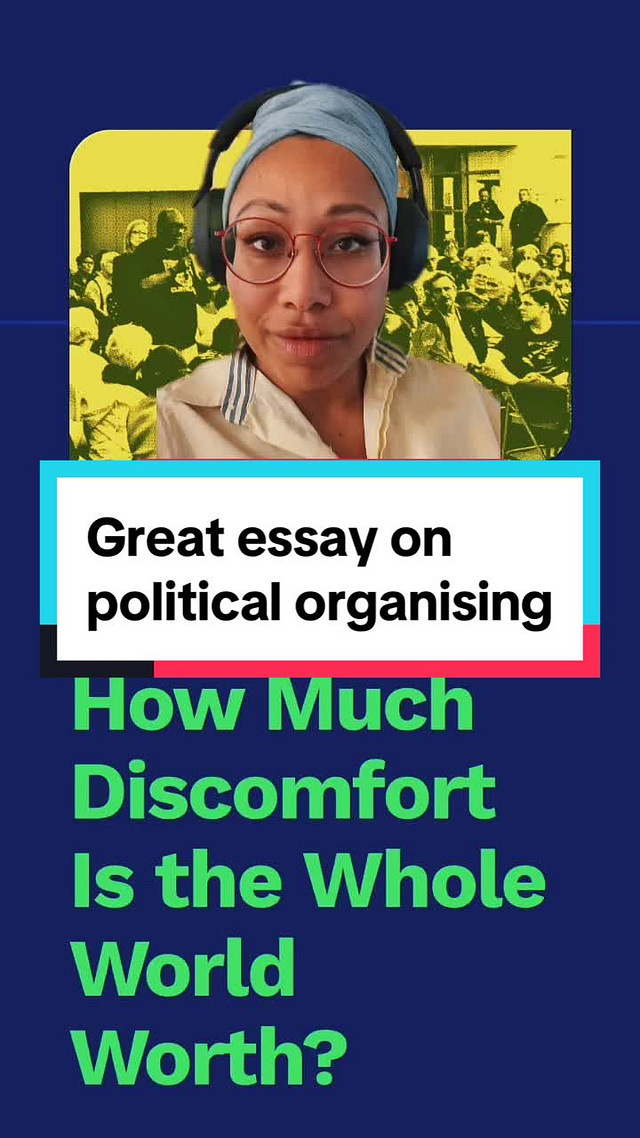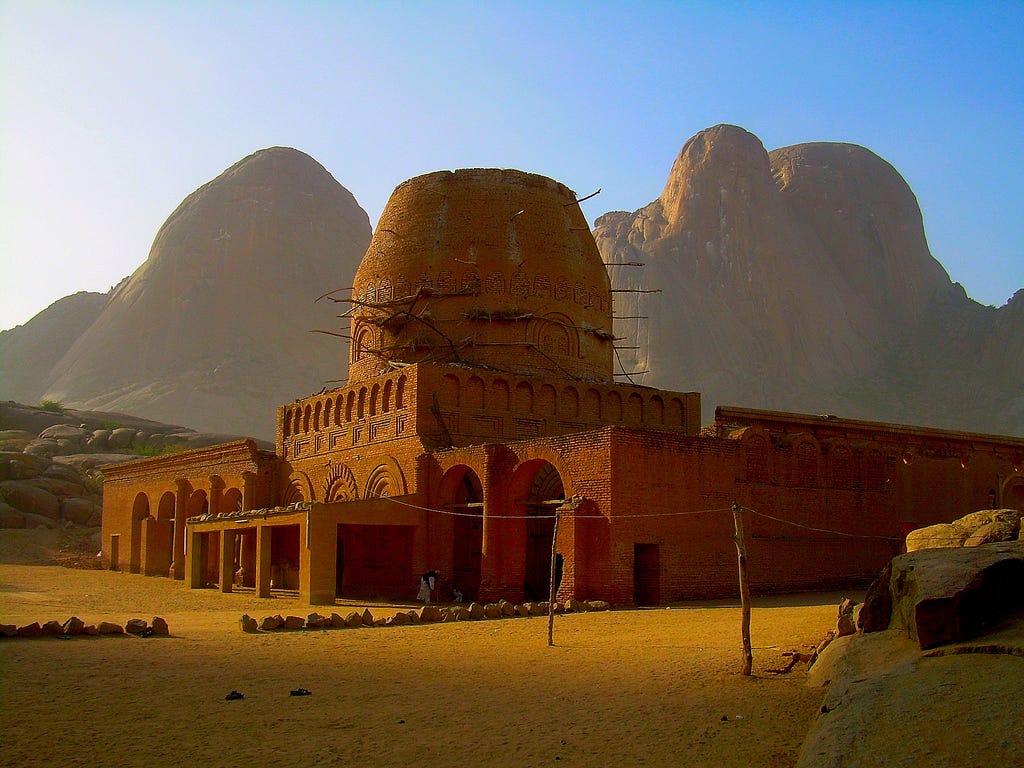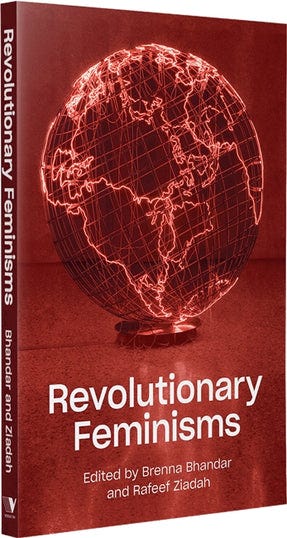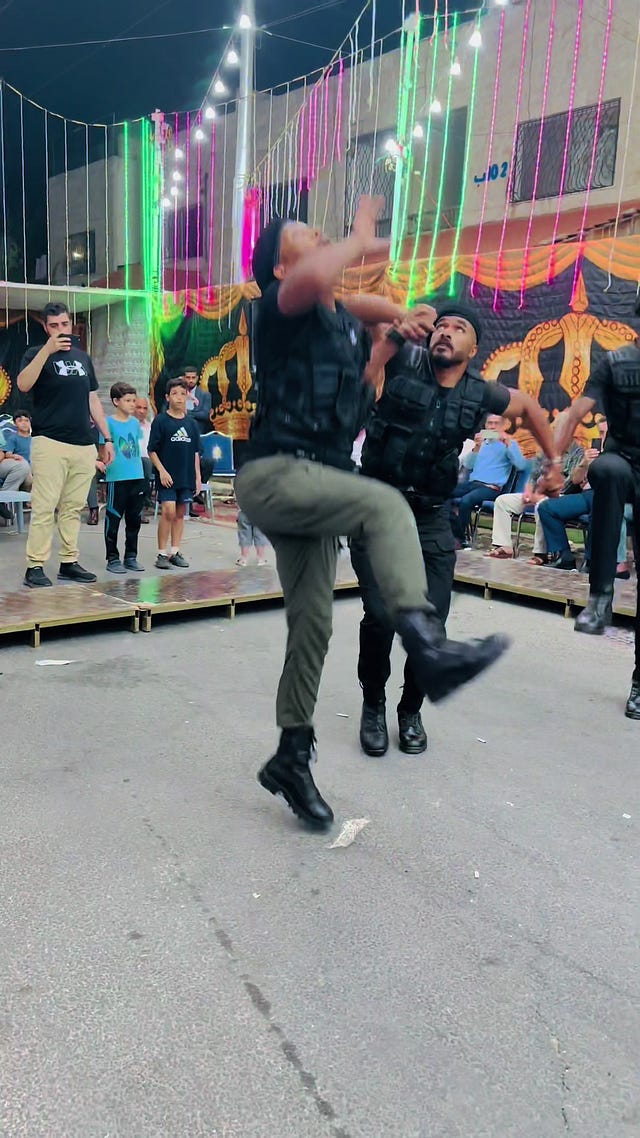On friendships in trying times...
Can you be friends with folks on the opposite ends of an issue?
I don’t think I am alone in feeling it’s been a strange couple of weeks, for a variety of tragic reasons, and also, unusually, for friendships.
This moment feels reminiscent of the summer months of 2020, in the wake of the murder of George Floyd. In the oppressive heat of those claustrophobic months, there was an expectation that individuals and companies come out in support of Black Lives Matter; there was tension in the air, heightened emotions, righteous anger. Celebrities and institutions were being de-platformed left, right and center, friendships between Black and white folks questioned, interrogated, lost.
There is one main difference between that summer and this fall, however. Broadly, among ‘progressives’, there seemed an agreed understanding: racism was bad, Black lives did matter, and that there was one right side of history. ‘Liberal’ white folks were not so much questioning the existence of their power and racial injustice as much as grappling with their guilt and fragility around it.
That same consensus does not exist now, as the bombing of Gaza by the nation state of Israel continues well into its second week. While Palestinians and their allies continue to advocate, protest, grieve, mourn, fundraise, lobby for an end to the occupation, there is another dynamic at play. How are you meant to feel when your friends, colleagues, clients are not only silent in the face of war crimes committed against vulnerable civilians, but in some cases, advocate for it?
I work with language; as a writer, words are my métier. In times of war, words carry the weight of the world on their stems. We are all choosing our words so carefully, yet even that care can seem…callous.
A content creator’s carefully worded post can seem like ‘both-side-ism’, a position which pleases no-one but is perhaps the most ‘brand-friendly’. Organisations are putting out statements, then apologising for them one way or another, depending on the political position of their audience. Folks call each other out for their silence. Others disagree. I find myself noting who is making what statements, online or in mainstream media, and adjusting my purchasing decisions accordingly (RIP Sweetgreen).
I asked a Palestinian friend and comrade about the quiet noticing, the assessing, the loud silences. Should I really be holding people - not the politicians and leaders, but everyday folks - to their online declarations (or absence of) in moments like this?
My friend’s response cuts to the core of the matter. Yassmin. It’s genocide.
Of course.
Then: how can I be friends with someone who refuses to see my humanity?
I agree.
Then, I wonder.
I am not Palestinian, so I have more bandwidth than friends from that community have right now to wrestle with this question.
I ask myself: Is this what the Prophet Mohammed (SAW) would have done? Is this what abolitionists would advocate for? Is this me being my best, transformative, self? What do I really expect from people, especially those who - for whatever reason - do not engage in geopolitics? People like my younger brother? There’s a genocide happening in Darfur, again, right now. Am I mad at every person who doesn’t post about Sudan? Who doesn’t mourn Sudanese life publicly?
If not, why not?
Am I being an apologist for cowardice, or extending compassion and understanding?
I don’t have answers. But I am trying to figure out the best way forward.
If an acquaintance posts only in solidarity with Israel and doesn’t mention Palestinians at all, what is the best thing to do? Disengage with them entirely? Or educate? Do I inform them of why that position comes across as supportive of Israel’s genocidal position towards Palestinians? Do I tell them American political scientist Ian Bremmer argues "dehumanizing Palestinians" is essential to a successful Israeli society, and that project of dehumanisation lay the groundwork for today’s crimes?
You can’t live in Israel today and not care about the two-state solution unless, to a degree, you’re prepared to accept that Palestinians aren’t really people. Right? You have to. Because they have none of the economic opportunities, none of the personal security opportunities, none of the educational opportunities. And you have to be able to do that, otherwise, the cognitive dissonance would be too great. Otherwise, you’d say “how can I live like this, and allow these other people to live like that?” (source)
Do I remind them that this is a political and colonial conflict, and not a religious one? Do I reinforce that framing it as a religious conflict is offensive to both Jews and Palestinians, as many Jewish communities oppose the actions of the Iraeli state, and many Palestinians are in fact Christians? Is it even possible, in the face of such intense propaganda, to move hearts and minds?
The truth is, I am used to being dehumanised. I’m a Sudanese born, hijabi-wearing Muslim woman who grew up in Queensland in the post-9/11 era. I spent years as a right-wing punching bag, dehumanised at scale on mainstream media, social media, in my own workplace and by my own friends. I have strangely, learnt to live with it. Almost come to expect it. Certainly, I know how to challenge it, stare it in the face, and force it to reconsider its position. But that’s me at the personal, individual level. I’m not sure I would recommend it, or advise accepting it. But what has it taught me?
I cannot do what has been done to me to others.
I cannot turn into the cruelty that I abhor.
I refuse to.
Is that hard? Of course. Of course! It is far easier to be the villain. But this is where Allah has placed me. Not in the path of a rocket, or in a IDP camp where survival is my focus. No. Allah has placed me in a context and society where my basic needs are met (Alhamdulilah!), and therefore my work, my struggle, my jihad, is different. It involves seeing those who want my destruction not as animals as they might see me, but as fully human.
That does not mean apologising for their actions or accepting their positions. But it does mean that I cannot disregard them completely. It does mean that I cannot dismiss anyone as simply evil, inhuman, beyond redemption.
If I begin to see others as less than human, then I descend into a dehumanisation of the self.
May Allah protect us all from the darkness in all our hearts, inshallah.
What do you think? Do I have this all wrong? How do you navigate this friendship terrain?
Recommendations this week speak to organising, movements and language.
How Much Discomfort Is the Whole World Worth?
One of my favourite pieces this year, so much so I shared a tiktok video on it!
Organizing is not a process of ideological matchmaking. Most people’s politics will not mirror our own, and even people who identify with us strongly on some points will often differ sharply on others. When organizers do not fully understand each other’s beliefs or identities, people will often stumble and offend one another, even if they earnestly wish to build from a place of solidarity. Efforts to build diverse, intergenerational movements will always generate conflict and discomfort. But the desire to shrink groups down to spaces of easy agreement is not conducive to movement building.

 Tiktok failed to load.
Tiktok failed to load.Enable 3rd party cookies or use another browser
Revolutionary Feminisms: Conversations on Collective Action and Radical Thought
A collection of interviews which changed my perspective on organising. I read it in 2021, and it informed so much of the thinking I explored in my essay collection, TALKING ABOUT A REVOLUTION.
On Dehumanising Language
Yes, it’s another tiktok video. This was a fantastic lesson in the way language frames stories, specifically with respect to Palestinians. Have noticed these?
PS - If you’re in NYC this week, I’m doing an event with the incredible Sara M Saleh at the People’s Forum in Manhattan. Would love to see you there - or join us on the livestream! Tickets here.
Thank you, as always for reading and supporting my work. Big shout out to this week’s newest paid subscriber: Anthony! As a freelancer of almost a decade, income from this newsletter makes the world of difference, and every little bit counts. If you feel like you have the capacity to support my work, do consider upgrading to a paid subscription.
I leave you with a joyful dabke, a traditional dance from the Levant. My knees were quaking, but damn, don’t they look like they’re having fun? Mashallah!
 Tiktok failed to load.
Tiktok failed to load.Enable 3rd party cookies or use another browser
Until next week inshallah,
Yassmin








"I cannot turn into the cruelty that I abhor. " the fact that you have faced the full force of hostility and choose this path is a blessing for us all. It's a teaching path; guided by a spiritual language. (It's kind of what I was trying to say in my talk).🤷🏼 Thank you for this grappling with this subject Yassmin. I'm so glad you and Sara got together in New York! So many thoughts- thank you for grappling with these even as the world feels apocalyptic. 💜🙏💜
This was so poetically written! I can’t imagine the pain of being dehumanised constantly. I’m so glad you shared this and it totally resonates with the political climate but also our identities as Muslim migrants in the Western world. The constant connection to Islam is so soothing!